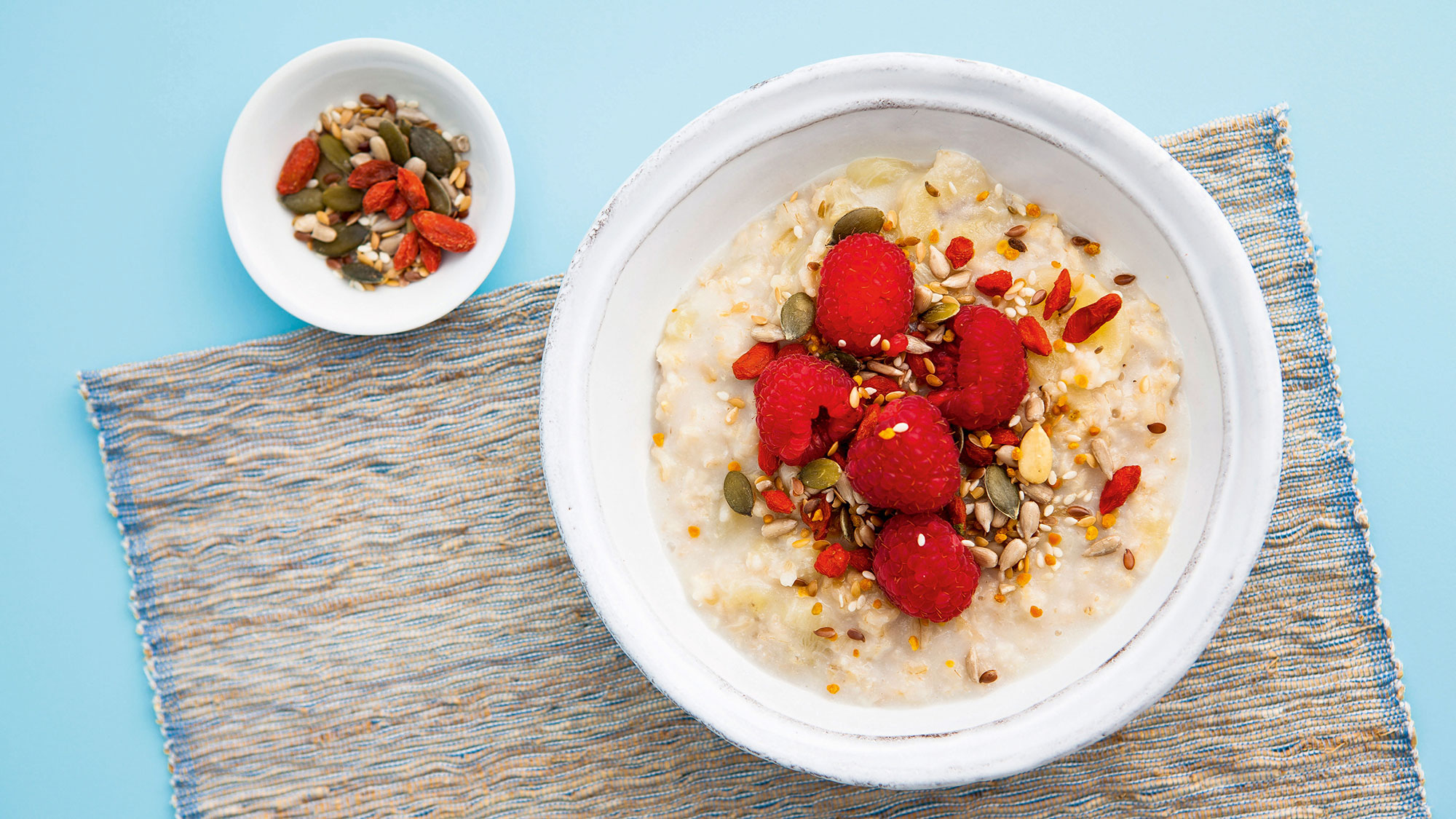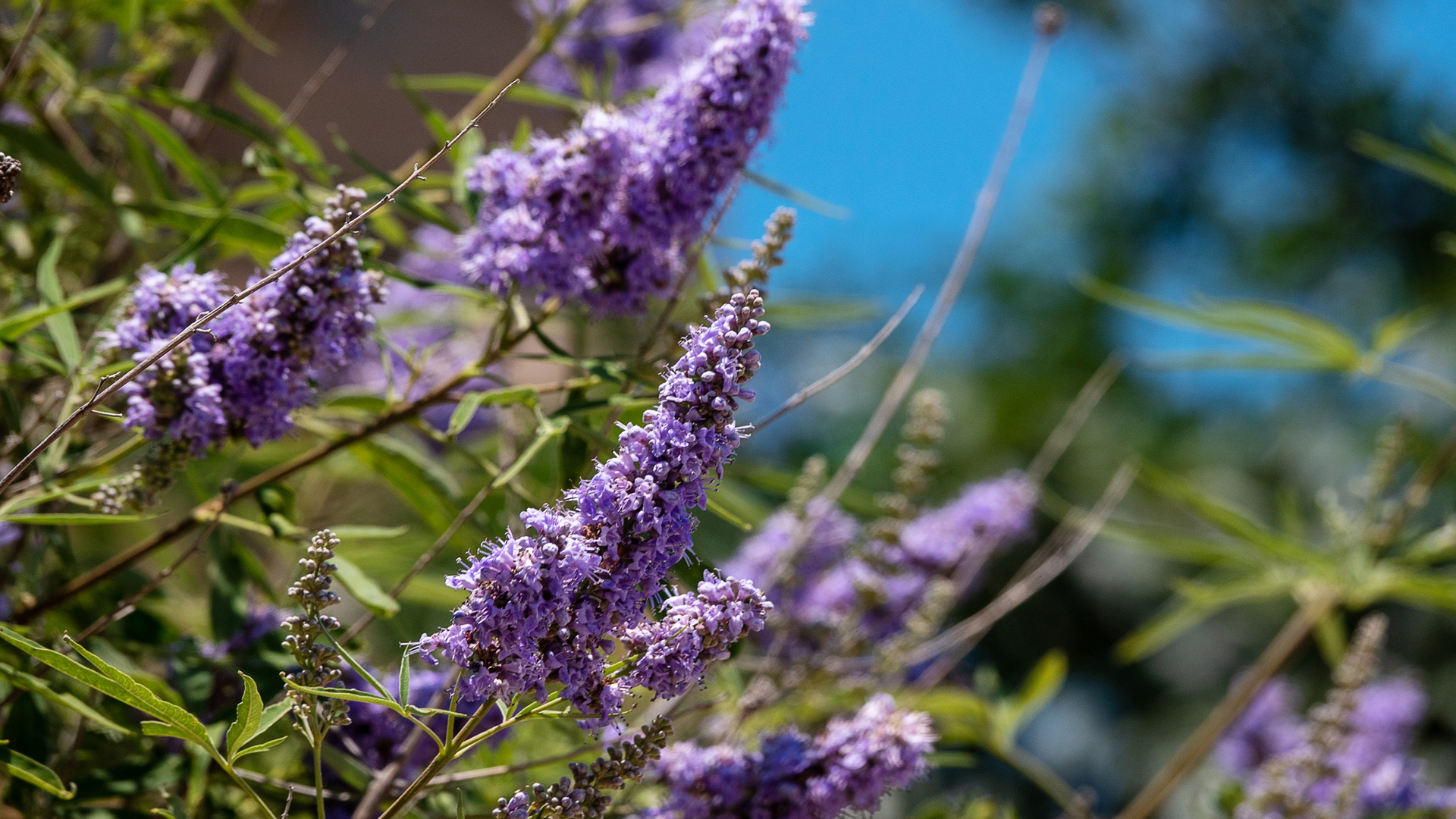
Start your week with achievable workout ideas, health tips and wellbeing advice in your inbox.
You are now subscribed
Your newsletter sign-up was successful
Menopause can be a daunting time, but there are lots of natural remedies for menopause to support you through this transition. From medicinal herbs to simple lifestyle changes, natural remedies can help to reduce your symptoms and get you back to feeling yourself again.
These remedies are especially useful if you prefer not to go down the hormone replacement therapy route - although many of the lifestyles tips we’ve rounded up below will also work alongside medication anyway.
For extra support to see you through this time of life, you can also check out our guide to the best menopause supplements, where you’ll find products to suit a variety of budgets, lifestyles, and symptoms. For now though, here are 9 natural remedies for menopause.
9 natural remedies for menopause
1. Balancing blood sugars
As your hormonal makeup changes, you may find that your body changes too. A drop in estrogen levels can lead to a redistribution of fat in our bodies, as well as weight fluctuations or changes in your shape.
You can avoid too much of an uptick on the scales by following a menopause diet. This helps to keep your blood sugar levels steady and avoids the peaks and troughs that can lead to overeating and weight gain.
GP Dr. Marion Sloan explains how different foods can impact our blood sugar levels. “If you eat a chocolate bar that’s 250 calories, the blood sugar shoots up, followed by a surge of insulin which makes it crash down,” she says. “You get a slump in energy, a surge of appetite stimulated by the insulin rise, and you feel very hungry soon afterward. The same 250 calories as porridge are slowly absorbed over one-two hours. The sugar rises slowly, plateaus, and falls gently. So, you feel fuller for longer.”
Keeping your blood sugar levels consistent may also help to manage mood swings associated with menopause.
Start your week with achievable workout ideas, health tips and wellbeing advice in your inbox.
2. Phytoestrogens
One of the most well-researched natural remedies for menopause is the incorporation of phytoestrogens into your diet to support your changing estrogen levels.
Nutritionist Dr. Naomi Newman-Beinart explains that phytoestrogens are naturally occurring plant compounds that can mimic the effects of estrogen in the body. “They have been found to be beneficial in combating symptoms and conditions caused by estrogen deficiency,” she says. “This may be of particular benefit to pre-, peri- and post-menopausal women. Studies have suggested that including plant-based foods rich in phytoestrogens may help women raise estrogen levels in their bodies. It is the depletion of these hormones that leads to all the troublesome effects associated with menopause.”
Fiber-rich foods such as berries, seeds (particularly flaxseed), grains, beans, and nuts are all excellent sources of phytoestrogens.

3. Maintaining a healthy weight
When it comes to health, this advice isn’t new, but maintaining a healthy weight becomes particularly important after menopause when the risk of developing health conditions like heart disease increases. This is because estrogen keeps our cholesterol levels down throughout our reproductive lives, so once the estrogen levels drop off after menopause, we no longer benefit from its great cardioprotective properties. This makes it all the more important to ensure you’re eating lots of high-fiber fruits and vegetables to keep you feeling full and to discourage you from overeating. Try to limit your intake of processed foods too, as these are high in sugar, saturated fat, and salt and can lead to weight gain.
Carrying additional weight can also exacerbate your menopause symptoms, such as sweating and hot flashes.
4. Staying hydrated
While staying hydrated is important for everybody, it becomes particularly vital when going through menopause. Symptoms such as hot flushes and night sweats can be very dehydrating, so it is important to replace water lost during these episodes.
If you’re struggling to take on enough fluids, check out our six easy ways to drink more water, or invest in one of the best water bottles to carry around with you.

5. Black cohosh
Black cohosh is one herbal remedy that may help to control the symptoms of menopause. You will generally find it in the form of a supplement made from roots of the black cohosh plant, which one study found was able to help reduce night sweats, hot flushes, and other menopause-related symptoms.
Newman-Beinart also suggests supplementing with black cohosh, among other natural remedies. “Various kinds of phytoestrogens are also found in many medicinal herbs, including red clover, black cohosh, alfalfa, hops, licorice, and turmeric – so look for these supplements too,” she says.
It’s worth noting that medicinal herbs like black cohosh are not suitable for those taking HRT because they can have negative interactions. Speak to your doctor before supplementing.
6. Angus castus
Agnus castus or ‘chaste tree’ is a Mediterranean plant that contains phytoestrogens. These can have a hormone-balancing effect. One study found that agnus castus had a significant impact on symptoms of menopause, including disturbed sleep, night sweats, anxiety, and low mood.

7. Sage
One 2011 study into the efficacy of sage in controlling symptoms of menopause suggested that it has real clinical value for menopausal women, particularly in reducing hot flushes and night sweats. Sage’s ability to decrease the frequency and duration of sweating episodes may also help to reduce the disruptive impact of these symptoms on day-to-day life and improve hydration by lowering water loss.
8. Red clover
Red clover contains phytoestrogenic compounds known as isoflavones, which makes it an excellent natural remedy for menopause. One study found it to be particularly useful in helping with hot flushes, which plague many women going through menopause. Red clover is often an ingredient in menopause supplements.
9. St John's wort
St John’s wort is widely used as a holistic remedy for depression and anxiety - symptoms that can be exacerbated or even brought on by menopause. Taking St John’s wort might help with menopause and anxiety, as a third of women report struggling with anxiety through this time. Whilst the exact cause of menopause anxiety is not known, it’s thought it may be due to hormonal imbalances impacting mood, as well as anxiety over physical symptoms.
For more on menopause, take a look at our features covering; does menopause cause hair loss? Or, try out yoga for menopause.

Lou Mudge is a Health Writer at Future Plc, working across Fit&Well and Coach. She previously worked for Live Science, and regularly writes for Space.com and Pet's Radar. Based in Bath, UK, she has a passion for food, nutrition and health and is eager to demystify diet culture in order to make health and fitness accessible to everybody.
Multiple diagnoses in her early twenties sparked an interest in the gut-brain axis and the impact that diet and exercise can have on both physical and mental health. She was put on the FODMAP elimination diet during this time and learned to adapt recipes to fit these parameters, while retaining core flavors and textures, and now enjoys cooking for gut health.
